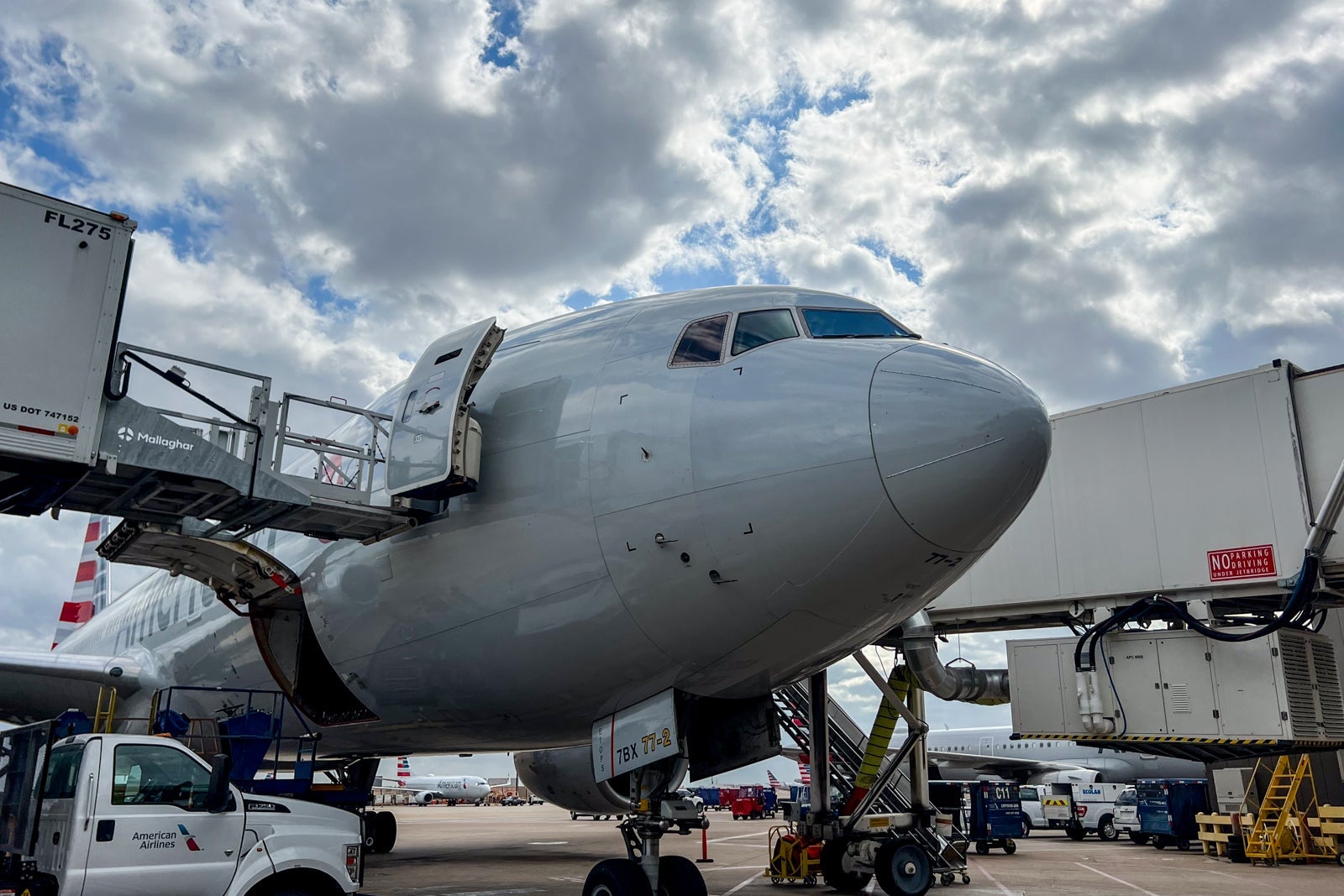Make these travel resolutions now for a better passenger experience in 2025
A new year is approaching, and we're all trying to make resolutions to improve our lives. While pondering those goals, don't forget to include ways to improve your air travel experience in 2025.
One thing is for sure: Looking ahead to 2025, the public's insatiable appetite for travel shows no signs of letting up. "I think that people just really want to travel now. And maybe it's a bit of 'Hey, I couldn't for a couple of years. And so I'm gonna travel,'" TSA administrator David Pekoske told TPG in a recent interview.
In fact, we saw record-breaking crowds over the Thanksgiving holiday, with a new single-day record of passengers screened at U.S. airports. It's expected that the new year will break more travel records, too.
So, here are our top seven tips for the new year of travel.
Find the best airfares
There's no reason why you need to pay full price for an airline seat when bargains abound. Check TPG's deals page for the best airfare prices. You can also subscribe to our daily newsletter for the latest deals and news.
Additionally, sign up for deal alerts from your favorite airlines. Use sites like Google Flights, Skyscanner, Kayak and Hopper to search for cheap fares.
These days, the website that gets the biggest workout from TPG staffers has to be Google Flights.
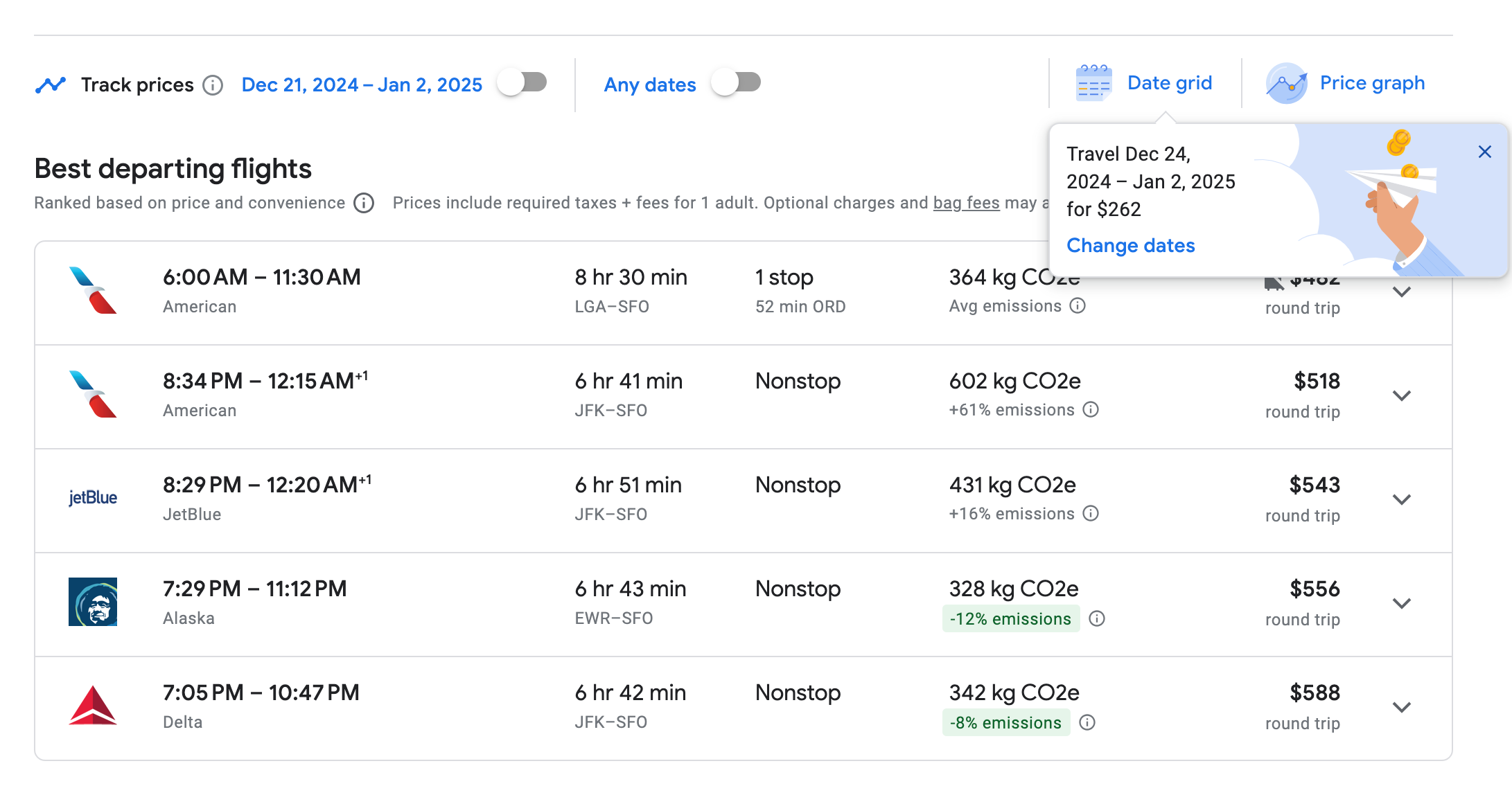
Use the search field to find the cheapest (or best) flights. Google will also tell you if prices are typical, high or low right now; it will even send you email alerts if fares jump or drop on specific routes you've selected. As you can see in the example below, Google says prices are typical for this search for flights to Bozeman, Montana, from San Francisco.
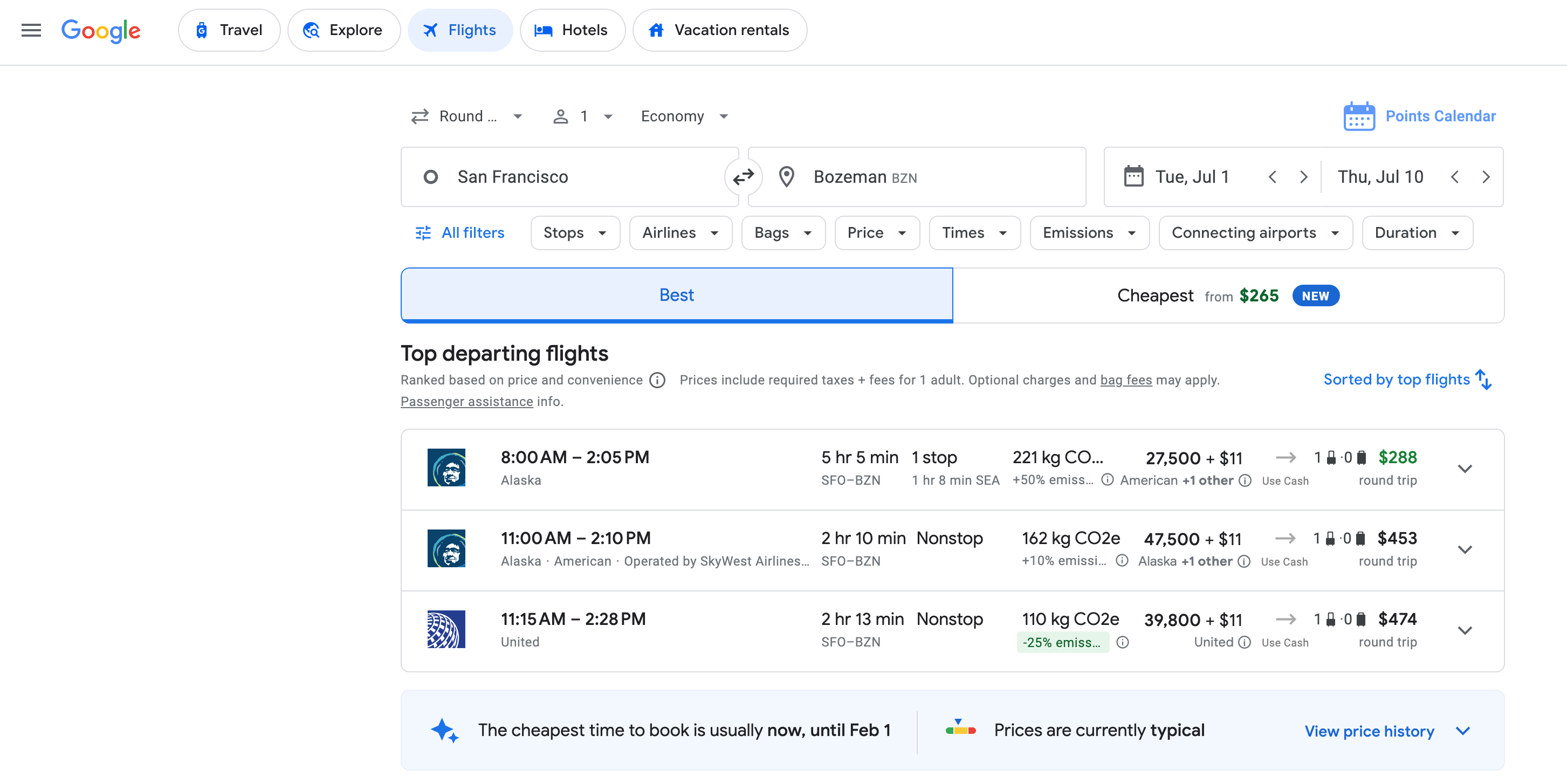
It also has some fun tools for finding a cheap destination close to home or around the world. By clicking the "Explore" button on the sidebar and entering your departure airport, Google Flights will give you a map or list of the most wallet-friendly destinations.

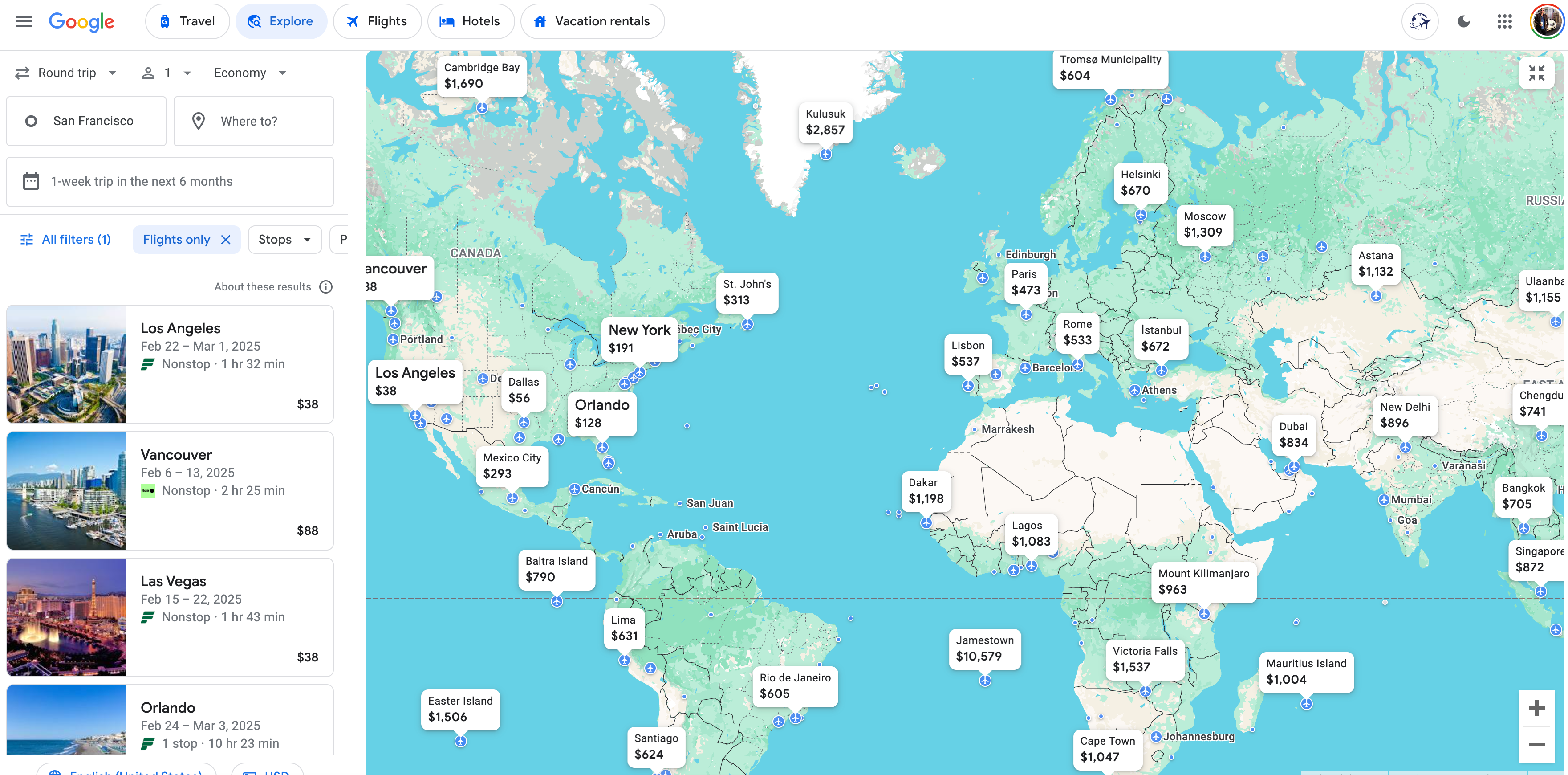
Related: 11 strategies to find cheap airfare
Of course, we like points deals even more, so we regularly publish points deals. There are also plenty of other new points-finding tools such as Points Path.
It's a free browser extension that displays award pricing alongside cash prices for select airlines in Google Flights. It tells you which transferable points can be used with the airlines it supports, recommends when to use points versus miles and suggests when to book a paid rate. Once you select an itinerary, you can book a paid rate as you typically would with Google Flights or redeem an award directly with the airline loyalty program.
Related: How to use the Points Path extension to compare cash and award rates in Google Flights
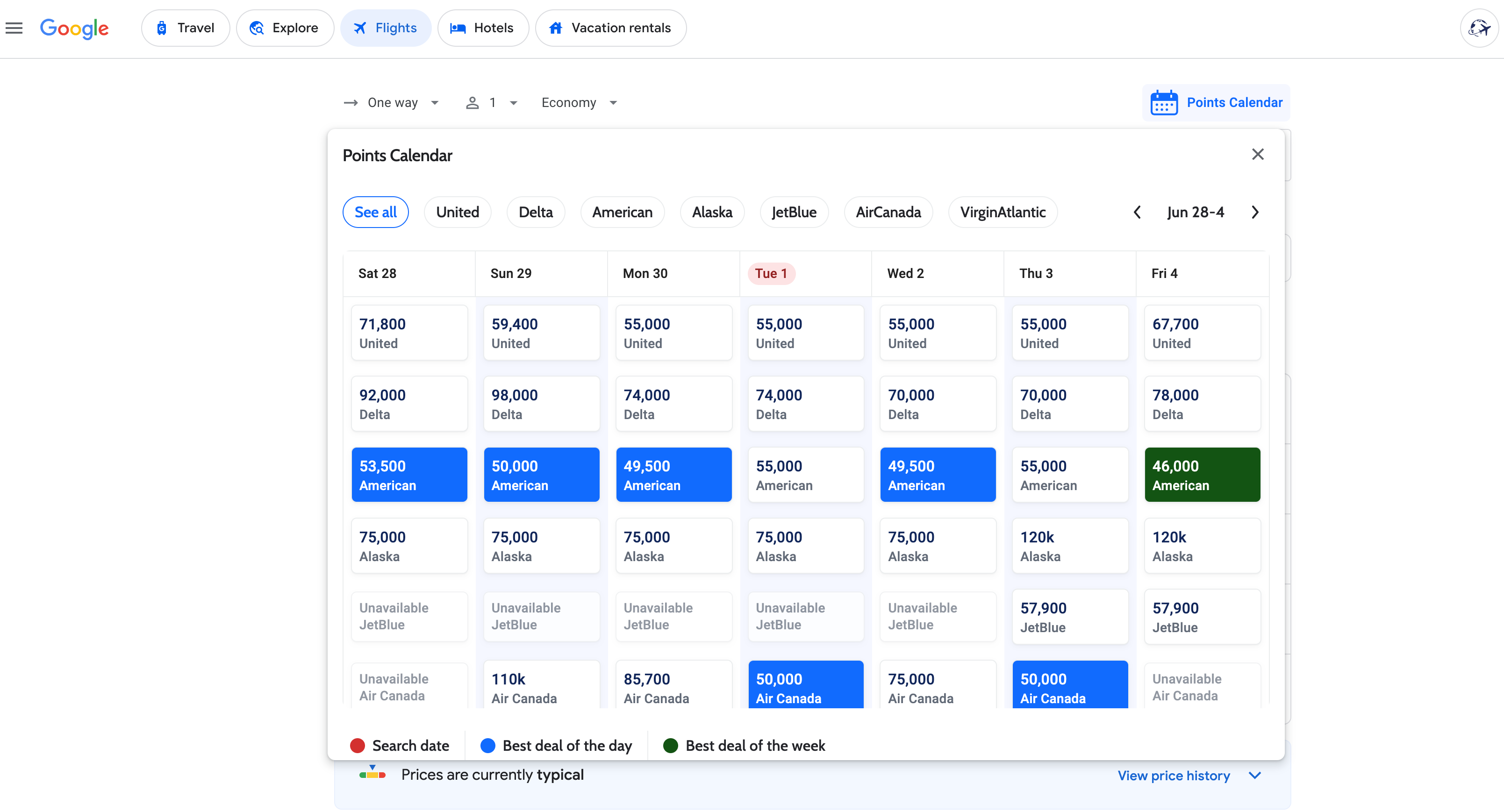
Download airline apps
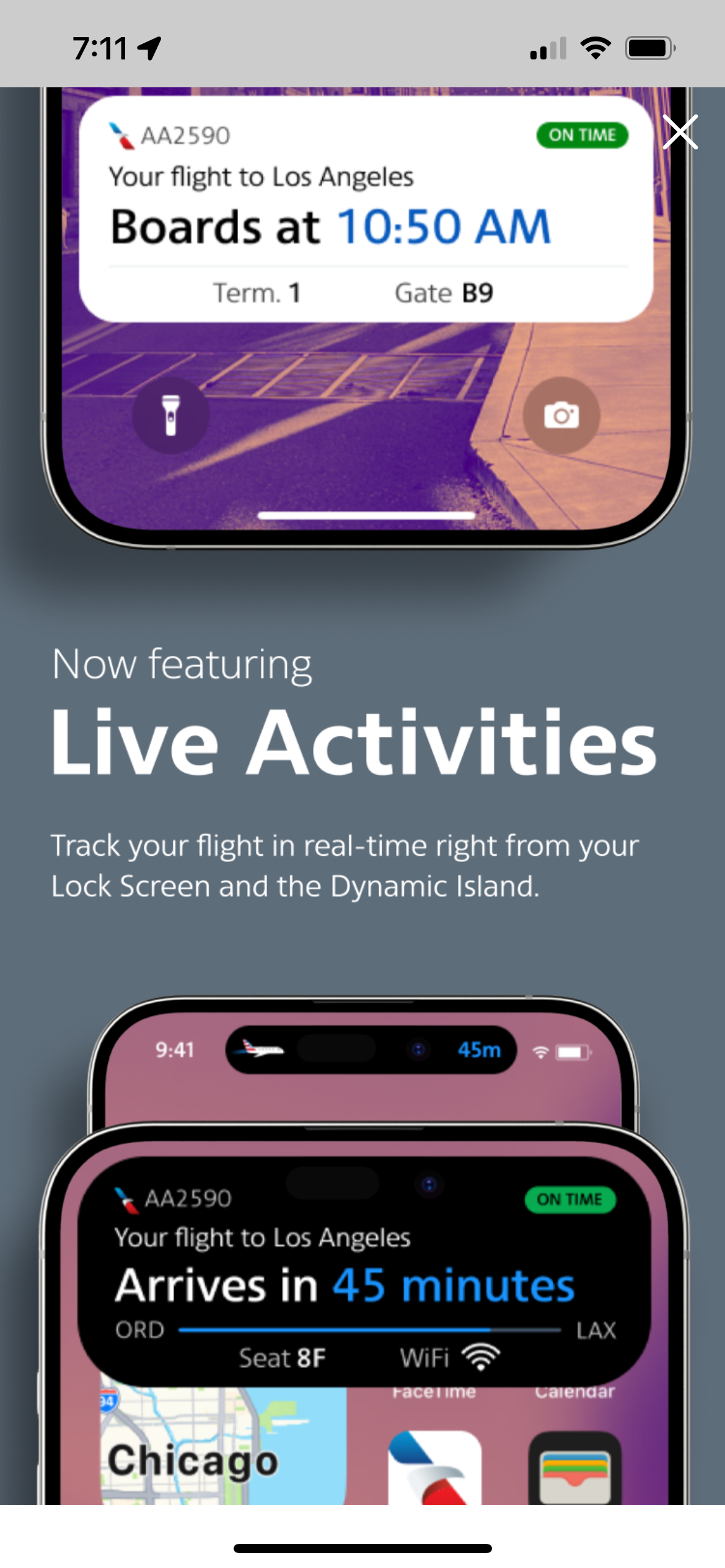
One of my top pieces of advice for travelers is to download the airline app for any flights you're taking.
Downloading these apps can be super helpful if your flight is delayed or canceled, as airlines use them to communicate flight changes. You can also get updates on late flights and rebook your own as needed.
Some airlines even allow you to rebook yourself in the app.
They often also have cheap upgrade offers, so it may pay to check the app even on days when you aren't traveling.
Of course, airline apps have other functions, too. At American Airlines, it's how you'll get access to entertainment. On United, you'll need to upload your credit card information directly into the app if you want to purchase anything from snacks to Wi-Fi while you're on the flight — a headache for some travelers.
Related: Here's what to do if your flight is canceled or delayed
Have a backup plan
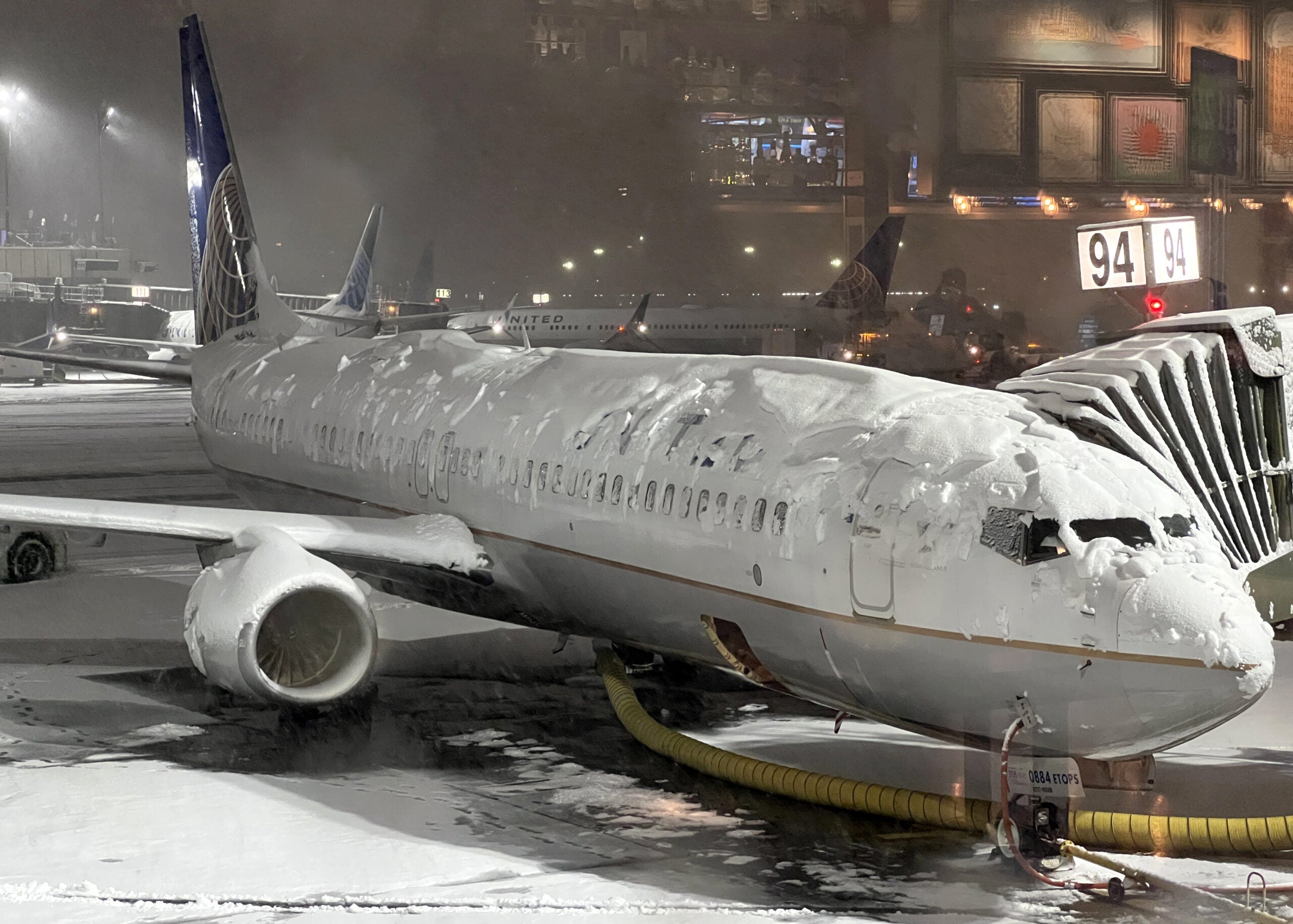
In these days of crowded flights and airports, and airline meltdowns, it pays to have a plan B and even a plan C in case things go sideways.
Protect yourself during the booking process by trying to find a nonstop flight rather than one with connections. Even if it costs a little more, you'll eliminate the risk of missing connections and lessen the chance of an airline misplacing your luggage during a transfer.
You should also consider taking one of the first flights of the day. These flights are less likely to encounter afternoon thunderstorms and are more likely to depart on time.
Related: Your flight is canceled or delayed — here's what you should do next
If your flight is severely delayed or canceled, you'll want to be ahead of everyone else on your flight who is also looking to get rebooked.
Head to the customer service desk (or lounge desk if you have access). You should also get on the phone with the airline or contact them via social media. In major meltdowns, an airline's social media team can sometimes help you faster than a phone or in-person agent can. You have to use every tool in the toolbox during operational problems.
Some airlines even have live chat capabilities to help navigate delays and cancellations.
I always have an alternate plan in the back of my mind in case a flight gets canceled or delayed. Know ahead of time which other airlines are flying the same route you are flying in case something goes awry. This way, when asking an agent to rebook you, you'll know the alternative flight options.
Save any expense receipts you incur during delays or cancellations. You'll want excellent documentation in case of meltdowns like the one Southwest Airlines passengers experienced during the 2022 holiday season.
And remember, sometimes the best idea is just to cut bait. If there is a major storm or technical meltdown, it might be best to give up on the trip or at least reschedule.
New rules mean that you are entitled to a full refund for any trips you can't take, even if it's weather-related.
Read more: Regulations shaping future of the travel industry
Get Global Entry or TSA PreCheck
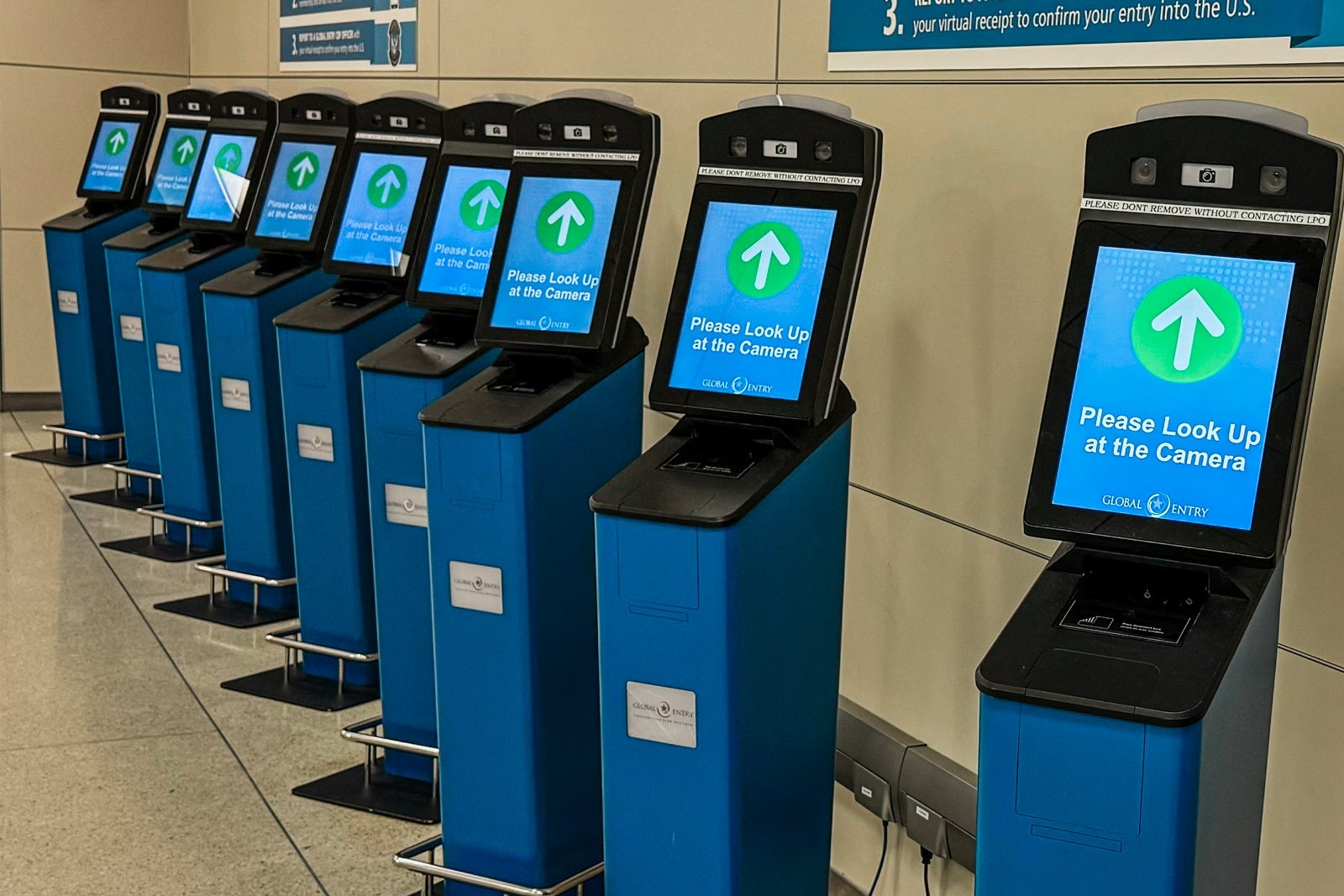
One of our favorite ways to speed through the airport is via Trusted Traveler programs like TSA PreCheck and Global Entry.
If you travel domestically and internationally, shell out $120 for five years of Global Entry. If you fly into an international airport — such as Dulles International Airport (IAD), where many flights land in the late afternoon to early evening — you can avoid long customs and immigration lines by using Global Entry kiosks. You'll be on your parking shuttle while others are still waiting.
Related: 14 things to know about Global Entry
The best part of Global Entry is that you're automatically enrolled in TSA's PreCheck program. Check your wallet — your credit card may cover the enrollment fee.
The other great part of having Global Entry or PreCheck is more and more airports are rolling out biometric or touchless security lines. The catch? You'll need to be enrolled in a Trusted Traveler program to be allowed to participate. Here's our complete guide to how it works.
Pack for the TSA checkpoint and comfort
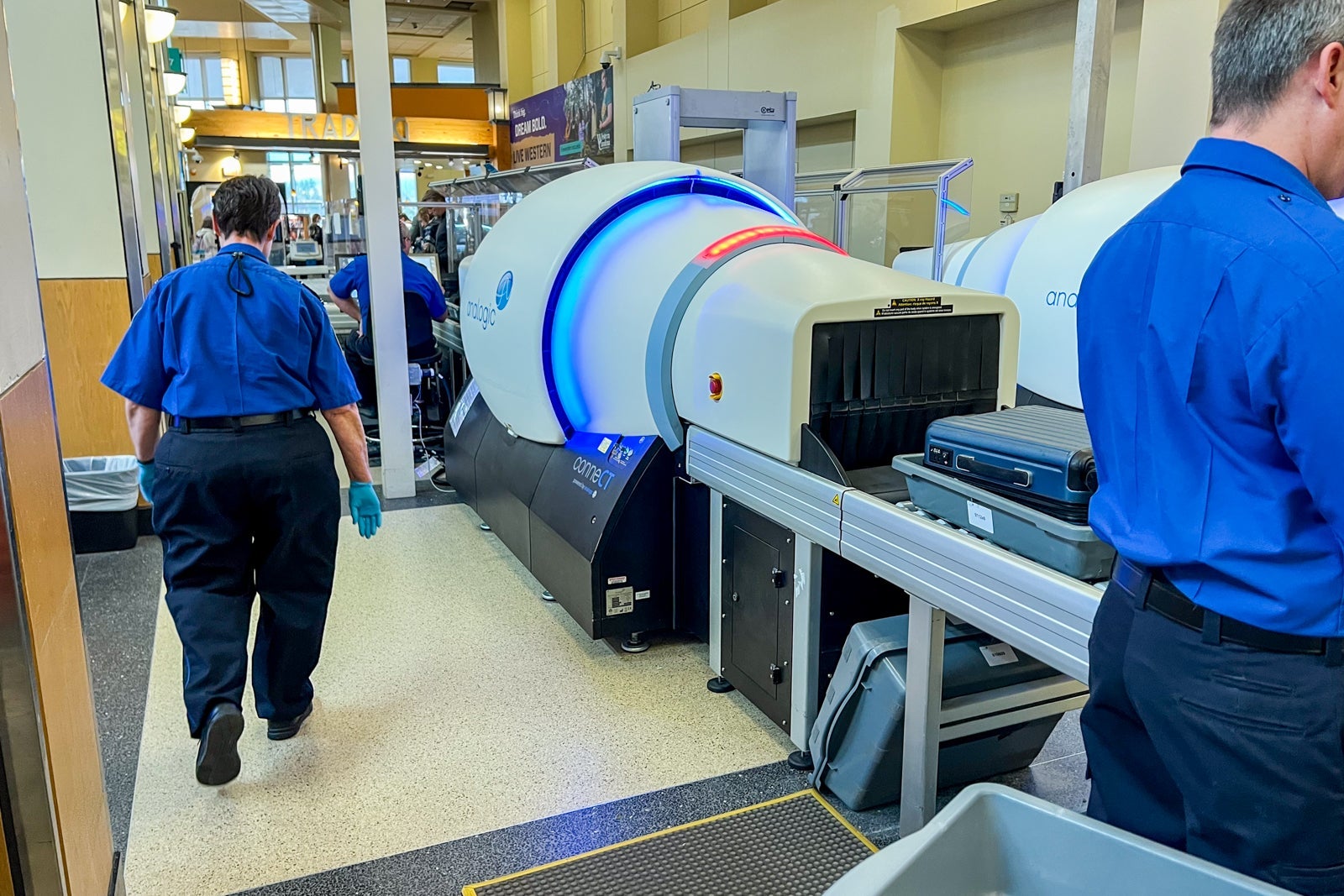
You don't want to be delayed at a TSA checkpoint because you had the wrong things in your carry-on bag. Download the MyTSA app to see what you can — and can't — bring in your carry-on or checked bag. (And if you need a new carry-on bag, here are some of our favorites.) Buy travel-size containers for 3 ounces of liquids and gels that fit into a quart-size plastic bag.
Related: 10 ways to get through airport security faster
Opt for shoes that are easy to put on and take off to speed you through the checkpoint.
Since comfort is key when traveling, what you wear onboard is important. Choose clothing with stretchy fabrics, such as cotton knits or blends. Carry lightweight knit or fleece cardigans to stay warm in cool aircraft cabins or to use as a pillow on red-eye flights.
You might want to keep the following items in your under-seat bag: a Kindle, headphones, earbuds, a charger for electronic devices, an empty water bottle, medications (over-the-counter and prescription), a travel wallet, small toiletries, hand sanitizer, tissues, lip balm, lotion, and a jacket or oversized scarf for cold cabins.
Related: Keep calm and carry on: The best carry-on luggage for every kind of trip
Choose your seat wisely
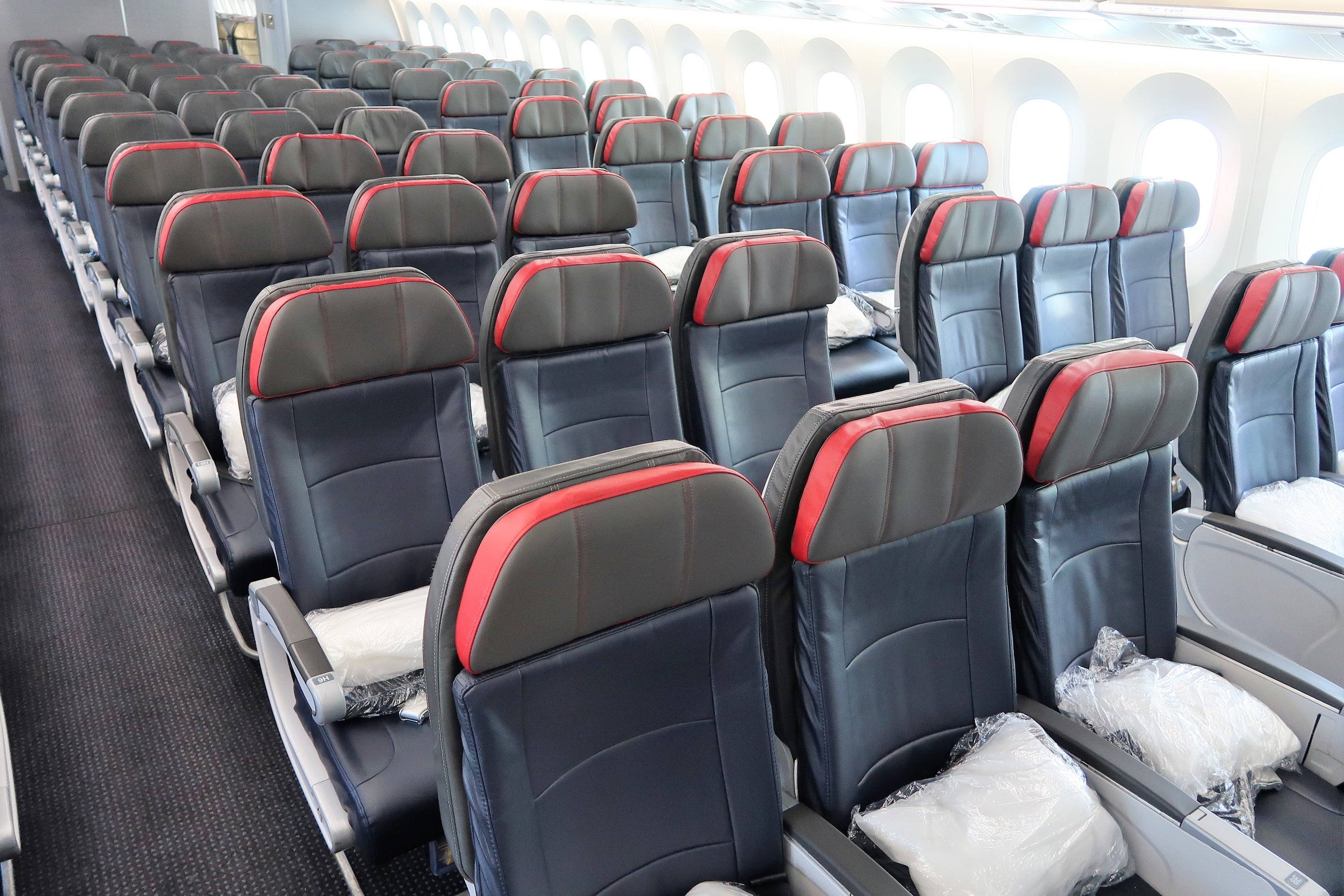
When airlines allow you to choose your seat when booking a flight, do it — but be willing to pay for it. Check out websites like SeatGuru and AeroLopa to help you avoid the dreaded middle seat, a noisy galley or the lavatory. Choosing a seat also means you won't annoy your fellow passengers by asking them to switch seats.
Related: Where is the best seat on an airplane? Here's how to choose the place to sit whenever you fly
Of course, TPG wants you to be on the pointy end of the plane. But even in first class, you could pay more for certain better seats. It always makes sense to double-check the seat map.
And if your ticket has you boarding last on a flight, consider paying to get on the plane after the elite members board. This will ensure plenty of space in overhead bins for your larger carry-on bag, plus it gives you time to settle into your seat. Remember, some airline credit cards come with priority boarding as a perk of holding the card.
Bring your own food
Stop spending money on overpriced airport food or boarding your flight with a growling stomach and hoping to buy overprocessed food after taking off. Full meals on flights — unless they're international — have gone the way of the dinosaur. Some airlines offer buy-onboard fare, but with most, you're lucky to get peanuts or pretzels. Instead, pack your own food, including fruit, granola or energy bars, cheese and crackers, vegetable chips or sandwiches to help stave off hunger on your flight.
Bottom line
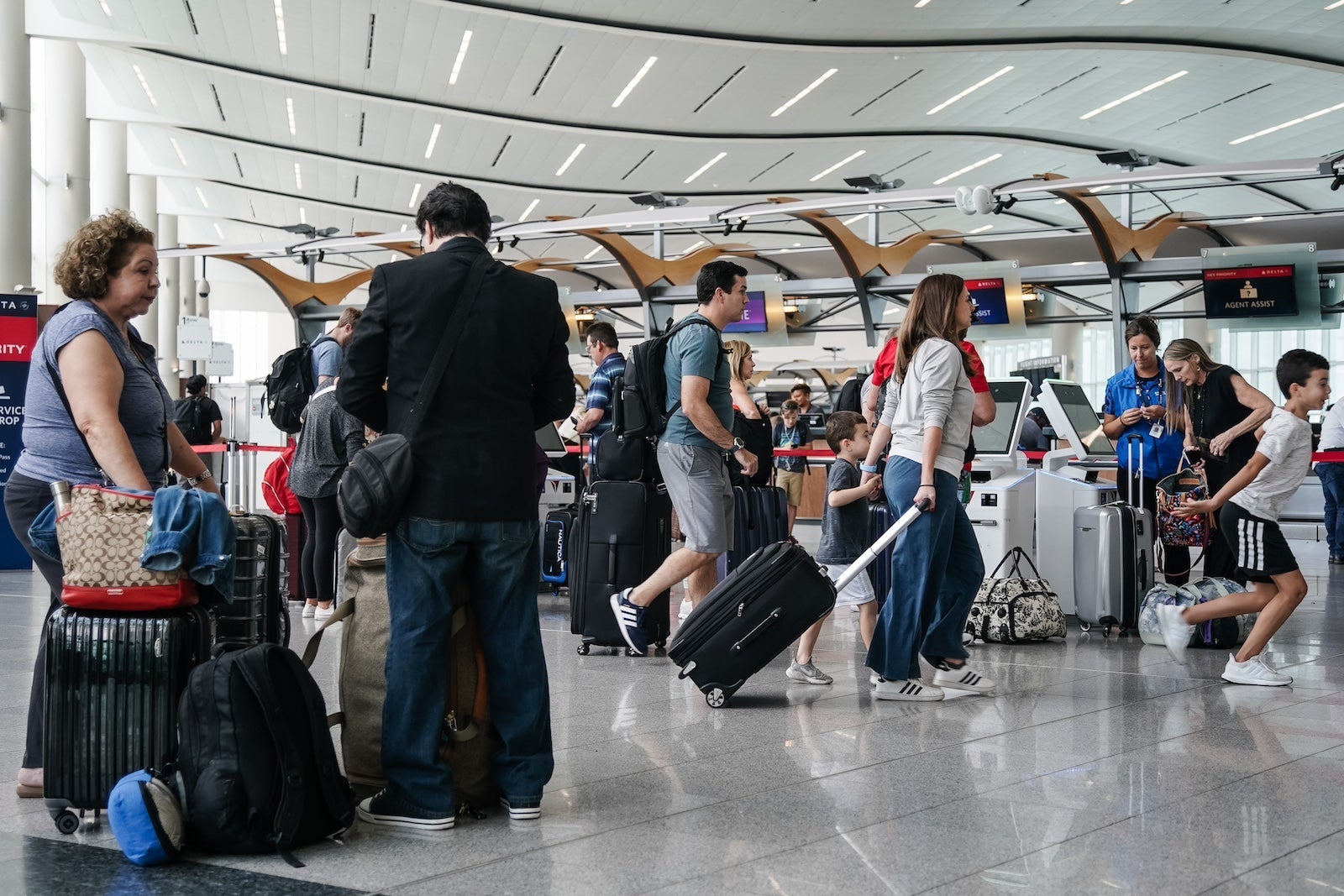
Travel is hard enough these days as record numbers of passengers continue to take to the skies. However, adopting good travel resolutions can make travel more pleasant and less stressful in 2025 and beyond.
Related reading:
TPG featured card
at Capital One's secure site
Terms & restrictions apply. See rates & fees.
| 5X miles | Earn 5X miles on hotels, vacation rentals and rental cars booked through Capital One Travel |
| 2X miles | Earn unlimited 2X miles on every purchase, every day |
Pros
- Stellar welcome offer of 75,000 miles after spending $4,000 on purchases in the first three months from account opening. Plus, a $250 Capital One Travel credit to use in your first cardholder year upon account opening.
- You'll earn 2 miles per dollar on every purchase, which means you won't have to worry about memorizing bonus categories
- Rewards are versatile and can be redeemed for a statement credit or transferred to Capital One’s transfer partners
Cons
- Highest bonus-earning categories only on travel booked via Capital One Travel
- LIMITED-TIME OFFER: Enjoy $250 to use on Capital One Travel in your first cardholder year, plus earn 75,000 bonus miles once you spend $4,000 on purchases within the first 3 months from account opening - that’s equal to $1,000 in travel
- Earn unlimited 2X miles on every purchase, every day
- Earn 5X miles on hotels, vacation rentals and rental cars booked through Capital One Travel
- Miles won't expire for the life of the account and there's no limit to how many you can earn
- Receive up to a $120 credit for Global Entry or TSA PreCheck®
- Use your miles to get reimbursed for any travel purchase—or redeem by booking a trip through Capital One Travel
- Enjoy a $50 experience credit and other premium benefits with every hotel and vacation rental booked from the Lifestyle Collection
- Transfer your miles to your choice of 15+ travel loyalty programs
- Top rated mobile app


